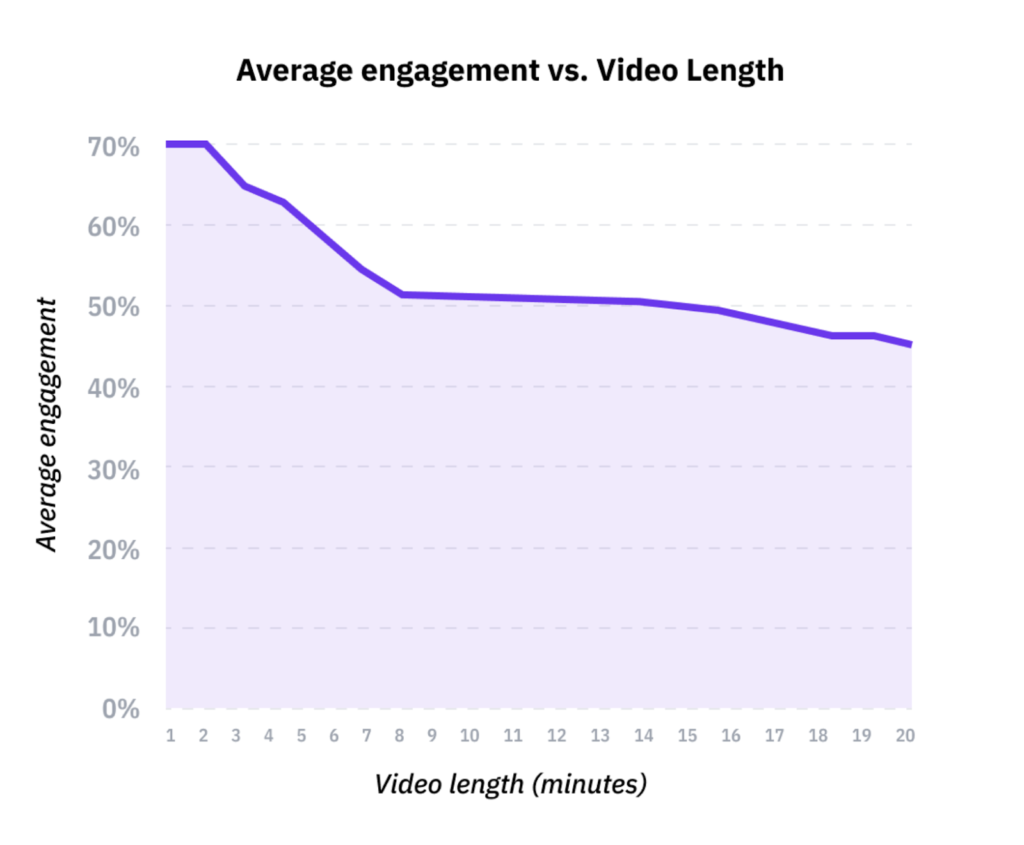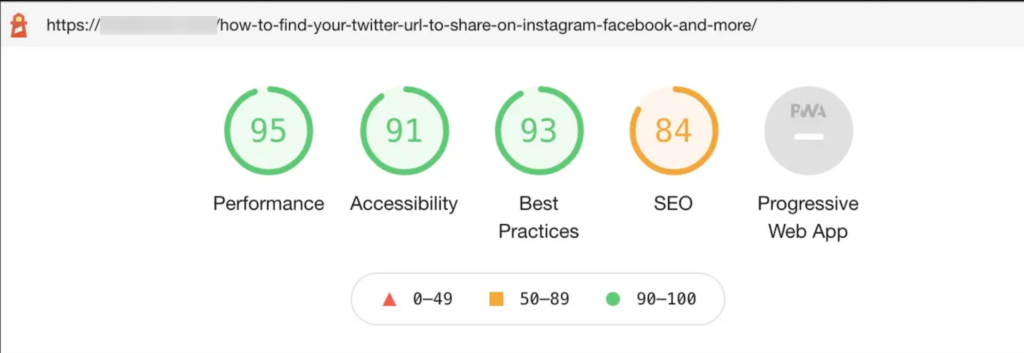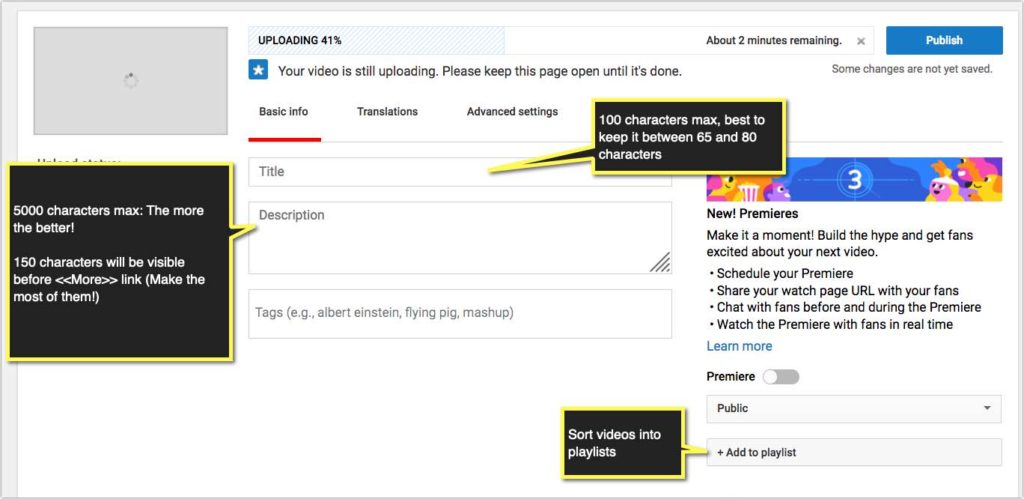30-second summary:
- According to various studies, videos help engage your page visitors as well as get them to remember your value proposition better and help them make purchase decisions
- When creating marketing videos to add to your landing page, keep them shorter than 2 minutes and position them prominently on the page
- Make sure to add convincing CTAs within your video to drive action
- While videos can boost on-page engagements, they can slow down your page (which may hurt its rankings), so make sure to lazy-load your videos and keep an eye on your Core Web Vitals
- Optimize your video page to increase its chances to rank in Google and generate traffic and product awareness
Video marketing has been on the rise for over a decade now. Consumers are getting more and more used to watching video content wherever they go, be it on Facebook or on a product page.
Which may make one think:
Isn’t video content expected by now?
Shouldn’t we produce a video every chance we get?
However, the real question is: Will videos be a conversion ignitor or a conversion killer?
Let’s find out!
First, some tempting stats…
There are plenty of case studies and reports claiming that using a video on a landing page is a great idea for boosting conversions:
- How-to videos is the most popular type of videos. According to Google itself, it is the most popular format of the video, even more popular than music or gaming.
- Viewers tend to remember 95% of a message after watching a video, and only 10% after reading it. Moreover, videos are capable of boosting conversions by 10-20% (Studies vary here, so numbers can even be much higher).
- Consumers tend to watch a video about a product rather than to read about it. Forbes Insights found that 83% of people prefer watching video to reading text.
- In an older Animoto survey, nearly all the respondents (96% of them) found videos helpful when making purchasing decisions online.
Now, some important technical stats…
1. The longer a video, the lower its engagement
You have about 10 seconds to grab the attention of viewers with a video marketing clip. According to Facebook, people who watch the first three seconds of a video will watch for at least ten more seconds, so there’s a pretty tight window here.
Once your video manages to grab a viewer’s attention, they will likely engage for two more minutes. After two minutes the engagement is sharply declining. Obviously, the more interesting a video is, the more people will watch but since we are talking about the engagement with a landing page, it is not about narrative videos that are able to hold viewers’ attention for 30 minutes or more.
That being said:
- Make sure your video’s first 10 seconds will grab attention
- Then make it no longer than two minutes to ensure your page visitors will perform a desired action on the page, instead of feeling bored or vice versa too engaged with your video.

2. In-video CTAs work!
Lots of landing page videos I’ve seen are missing in-video CTAs which is unfortunate because a video on a landing page is a very essential part of most buying journeys. In fact, a call-to-action within a video may drive as much as 380% more clicks to a landing page.
The whole purpose of a video on a landing page is to drive conversions, so create a video that leads into the sales funnel and gives detailed instructions on what to do next.
In-video CTAs can be in the form of verbal messages (i.e. the narrator encourages users to follow certain steps) and graphic end screens (an end screen with a call-to-action).
Don’t forget that your video may also be a traffic driver (i.e. people from Youtube clicking a link in the description to get to your landing page) as well as the discovery channel (people watch that video elsewhere and become aware of your product).
So make sure those CTAs can be followed directly without visiting your site, for example, where possible provide a phone number to call right away. On a similar note, make sure that desired action can be performed any time without direct involvement of your team. Set up smart AI-powered communication technology that can engage your leads during off-hours, like IVR or chatbots.
3. Video placement matters
Video placement is never something to take lightly. There’s no single tactic here, because no product or page is the same. A/B test different layouts and then experiment more.
From an SEO perspective, Google recommends using a video prominently on a page for it to index it and potentially generate video rich snippets.
Prominent videos can boost engagement by 50%. Additionally, repeating a video in the product image carousel and then lower on the page can improve performance of a page.

If your site runs on WordPress, there are a few themes that have video landing pages already coded up. I have found a few great ones on this list, so check it out when you have a moment.
4. Videos can slow down your page
Embedding any third-party content, including videos, will slow down the page, and lower your Core Web Vitals score. This can, in turn, hurt your page rankings because Core Web Vitals are official ranking signals. As an examples, here are scores before I embed a video:

And here’s the same page but with a video embedded:

Depending on your content management system, there may be different solutions to make this step easier. Here’s the workaround for WordPress (which will also help speed up your whole site, not just that specific landing page), and here’s a tutorial for Shopify. Wix claims to handle video lazy-loading for you. Check with your current CMS if you are using an alternative one.
5. Videos rank!
Wherever you are hosting your video (Youtube, Wistia, or else), don’t forget the basics: Use your keywords in the most prominent places (title, description, file name, etc.). Remember: Videos rank incredibly well and they can actually drive more people to your site and build awareness, not just help boost conversions.
Video page optimization is not much different from any content optimization process: You need relevant and useful content surrounding your video. You can also check out my Youtube optimization checklist to get your videos to rank higher:

So, should you start pumping out videos?
Videos can be very expensive and time consuming to produce. Which makes creating them difficult to justify if you’re a conversion focused organization.
What it really comes down to is your list of conversion hypotheses. Every growth team and conversion optimization team should have a running list of hypotheses to test. Each hypothesis should be ranked (at the very least) by:
- Test ease (or difficulty).
- Test cost. Consider developer-hours, video production costs, designer costs.
- Potential reward. How much do you expect this particular hypothesis to move the needle and why?
By creating a list that ranks your hypotheses, you can make better judgment calls as to what tests to run immediately and what tests you should put on the back burner.
You may have significant data (qualitative and/or quantitative) that suggests creating videos will produce a large return on investment. If that’s the case, don’t be afraid – get your director’s hat on and start pumping out video!
Side note: The system you create for your hypothesis list will most likely require continual improvement and tweaking to get it right. The important thing is to start one now if you haven’t. As you run tests, you’ll figure out what other metrics or ranking factors help you make better decisions for choosing what tests to run. Just be sure to iteratively improve your system according to your new findings.
Do you feel up to it?
Using videos to increase conversions is yet another risk vs. reward calculation. The upside can be huge, so don’t shy away from this conversion boosting technique.
Ann Smarty is the Founder of Viral Content Bee, Brand and Community manager at Internet Marketing Ninjas. She can be found on Twitter @seosmarty.
Subscribe to the Search Engine Watch newsletter for insights on SEO, the search landscape, search marketing, digital marketing, leadership, podcasts, and more.
Join the conversation with us on LinkedIn and Twitter.







